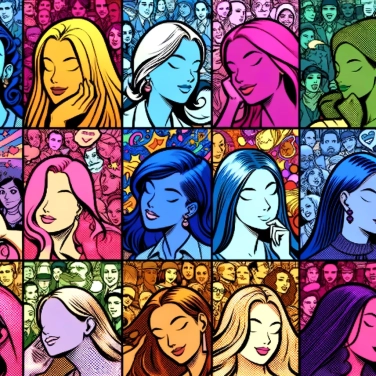The rules of politeness vary according to cultures due to historical, social, religious, and geographical differences that influence the norms and values of each society.

The rules of politeness often stem from habits deeply rooted in the history of a people. It is the customs and traditions that shape what is considered appropriate or inappropriate. For example, in Japan, the respect expressed through bowing dates back to the time of the samurai. In Europe, shaking hands with the right hand was a practical way to show that one was not carrying a concealed weapon. Over time, these symbolic gestures become reflexes, almost natural. Even if we forget why we do it, these historical codes remain deeply present in our daily lives.
In every culture, the way people address each other depends greatly on social relations and each person's place in the hierarchy. In very structured societies, such as Japan or South Korea, there are clearly defined rules depending on whether one is speaking to a boss, a colleague, or someone younger. This can range from the vocabulary chosen to the gestures or greetings used. Conversely, other cultures, like those in Northern Europe, place less importance on these hierarchies and quickly move to more relaxed and informal relationships, even with a boss or an older person. Here in France as well, differences in status often impose a certain distance or the use of formal address in specific professional or family contexts. The more a society values authority and well-defined roles, the more specific and unavoidable the rules of politeness become.
Religious beliefs significantly influence the way people interact. For example, in predominantly Muslim cultures, avoiding unnecessary physical contact with the opposite gender is often a sign of respect. In Japan, where Shintoism and Buddhism strongly influence daily life, humility and discretion are valued, which explains greetings by bowing rather than a more direct handshake. In countries with deep-rooted Christian traditions, saying "bless you" when someone sneezes actually originates from an ancient religious superstition related to protection against evil or illness. Similarly, in Hindu societies, removing shoes before entering a place is linked to notions of spiritual purity. All of this shows how spiritual beliefs shape what is perceived as polite or impolite.
From a young age, we are taught the rules of politeness through school and family. For example, saying "please" and "thank you," varying the way we greet others, or respecting certain specific gestures depending on the cultures, all of this comes directly from the educational system. Schools also take on the responsibility of instilling social norms of the country in children, through activities, games, or even by observing the behavior of the teachers themselves. Social groups, such as friends or colleagues, also play a key role in reinforcing certain habits or adapting them in their own way, depending on what is considered "cool" or acceptable within their circle. In short, what seems nice or polite in one group may appear strange in another: it is through schools and social interactions that we internalize these differences.
Cultural exchanges through tourism, media, or the Internet create new global references. For example, practices such as shaking hands or saying "hello" are becoming widespread everywhere, even in cultures that were originally quite distant. However, these close contacts sometimes lead to misunderstandings, as norms of politeness are perceived differently from one country to another. Some countries quickly adopt international customs to facilitate exchanges or trade. Others resist a bit longer to preserve their identity before gradually integrating these new habits. Ultimately, globalization does not necessarily lead to the uniformity of all rules, but rather promotes a subtle blend of local traditions and external influences.
In Japan, exchanging business cards follows a precise protocol: you must present and receive the card with both hands, carefully examining it before putting it away—an important mark of respect in professional interactions.
In some countries in the Middle East and South Asia, eating only with the right hand is considered polite because the left hand is traditionally reserved for personal hygiene and deemed impure for meals.
In New Zealand, the traditional Maori greeting called 'Hongi' involves pressing noses and foreheads together and symbolizes unity and the sharing of the breath of life between two people.
Direct eye contact is generally perceived as a sign of trust and honesty in the West, but in some Asian or African cultures, prolonged eye contact may be interpreted as a sign of disrespect or challenge to authority.
You can consult reliable cultural guides, watch video testimonials, or connect with members or communities from that country. Focusing first on basic polite norms such as greetings, common gestures, or ways to express thanks facilitates quick understanding.
Although varied, most cultures place great importance on respect, attentive listening to others, and expressions of gratitude, such as saying "thank you" and "please." Adopting a kind and courteous attitude is a universally appreciated rule.
Gestures like pointing, showing the soles of your shoes, crossing your arms, or offering gifts or food with the left hand can be perceived as rude in certain cultures. Always do your research in advance to avoid potential cultural faux pas.
If you realize that you have made a cultural blunder, briefly offer your apologies with sincerity and humility. Most cultures will appreciate your honesty and your effort to understand their social norms, thus improving your interpersonal relationships.
Knowing these rules helps you avoid cultural misunderstandings and create more harmonious relationships during your interactions. It also demonstrates respect towards your conversation partner, thus facilitating better integration and communication in the country you are visiting.

No one has answered this quiz yet, be the first!' :-)
Question 1/5